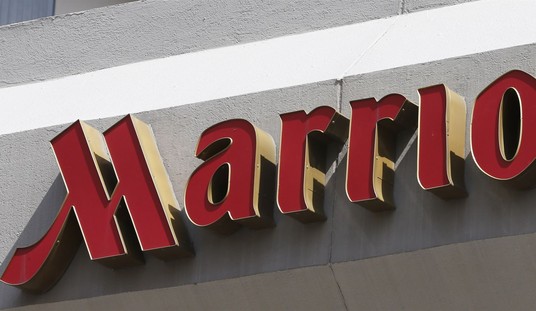So, while the U.S. Treasury is trying to tighten sanctions on Burma’s thug government, the United Nations has been busy funneling millions of dollars to the Burmese regime — thanks to a classic artificial foreign-exchange rate dodge, which the UN finally acknowledged in public only after weeks of questioning by Inner-City Press (see post below).
This latest in the long list of UN gifts to dictators came about as part of the relief mission launched in May to help Burmese victims of Cyclone Nargis. In a press conference yesterday at the UN’s New York headquarters, the UN’s under-secretary-general for humanitarian affairs, John Holmes, appeared not to understand the niceties of how the Burmese exchange-rate fiddle actually works. Nor, as Holmes told it, had other UN officials been paying much attention; they “were not aware of the extent of the loss.” Holmes’s estimate is that “probably less than $10 million so far” has flowed into the wide abyss between the market rate of Burma’s currency (the kyat), and the official rate, set by the Burmese junta, which is what the UN has been buying into.
The actual amount of money thus disappeared in Burma is still desperately unclear (“the losses are significant, but not absolutely gigantic,” was another of Holmes’s locutions yesterday on the subject) …. This is the UN, where officials have no hesitation in spelling out to the last decimal point their multi-year plans for the GNP of every developing country on the planet, or issuing an appeal for $482 million in emergency relief for Burma, or lamenting shortfalls in their elaborately calculated funding targets. But when it comes to accounting for where exactly the money goes, the UN is suddenly a place of missed messages, ignorance and confusion. They didn’t notice, they hadn’t realized, they never knew, they were not aware … this is the endless refrain, in Oil-for-Food, in Cash-for-Kim, and now in Burma Shave…
They “were not aware” … That’s highly questionable, in light of a June 26 UN internal document obtained and posted by Inner-City Press, which records in-house concerns more than a month ago that the Burma relief operation was suffering “a very serious 20% loss on foreign exchange.”
But let us assume that a UN official, especially in discussing the handling of millions in other people’s money, would never tell a lie.
In that case, one has to marvel at the parade of astounding naifs who rise to top ranks of the UN, apparently without ever learning to look out for even the simplest of financial scams and outrages. Take these innocents at their word, and one can only conclude that the UN specializes in promoting an extraordinary tribe of irredeemable dupes. Clueless, and apparently ineducable, they roam the first-class hotels of the Third World, dispensing billions worth of other people’s money and resources, indefatigably oblivious to fiddles that a six-year-old street grifter in any of these places could spot faster than you can say “millennium development goals.”
Tiered exchange rate schemes? Over-invoicing? After-sales-service kickbacks? Phony consulting fees? Oil buyers posing as end-users in Liechstenstein? Front companies run by Russians in Switzerland? A Mercedes shipped to Africa in the name of the Secretary-General? Double-billing in the Middle East by UNICEF? Counterfeit cash in the Pyongyang office safe? Cash transfers to North Korean front companies linked to nuclear proliferation?
From Kofi Annan to Ban Ki-Moon; from the UN Development Progam’s former administrator Mark Malloch Brown to the current Kemal Dervis; from the UN’s former humanitarian coordinator Jan Egeland (who promised transparency in funding of the 2004 tsunami relief efforts, and never delivered) to the current John Holmes (apparently so blindsided by Burma’s currency shave); from nameless officials deep in the UN alphabet soup to the scores of Assistant and Under-Secretaries-General floating like croutons on top; so very many UN officials would have us believe, as Holmes described his own operation, that they are “arguably a bit slow” to notice the stock mechanisms by which money meant to help the sick, the hungry, the stricken, somehow keeps flowing into the pockets of tyrants.
Maybe instead of fielding a toothless “Ethics Office,” the UN as a sort of remedial education service for its own top management should set up an agency of Bribery, Rackets, Insider Boondoggles and Extortion (call it UN-BRIBE), devoted to explaining, cataloguing and quantifying for the record the scams, cons, schemes and fiddles to which UN programs are so endlessly prone. Right now, the institutional memory for such stuff appears to consist solely of whatever will fit in Ban Ki-Moon’s wastebasket.
UN-BRIBE could perform the handy service, for instance, of providing public benchmarks for what level of bribery, scam, pay-off, rake-off, etc., qualifies at the UN as “significant, but not absolutely gigantic.” Or maybe, for ease in budgeting, provide graft-and-skimming schedules custom-tailored (and inflation-adjusted) to the habits of individual member states, UN departments, and so forth. No one could reasonably expect such an exercise to actually clean up the UN; it would almost certainly succumb at speed to its own arts — and in short order would probably have Burma, North Korea, Zimbabwe and Iran on its executive board. But hey, if this is how the UN works, why not at least make it official?
In fairness, of course, not everyone at the UN is so staunchly oblivious. There are also the whistleblowers, without whom many of the UN scandals would never come to light at all. But they are the exception; they lead an endangered existence, far less likely to be promoted than expelled, especially if their names become known to the perennially surprised innocents who run the institution — just ask former UNDP contractor, whistleblower in the North Korea Cash-for-Kim scandal, Artjon Shkurtaj.









Join the conversation as a VIP Member